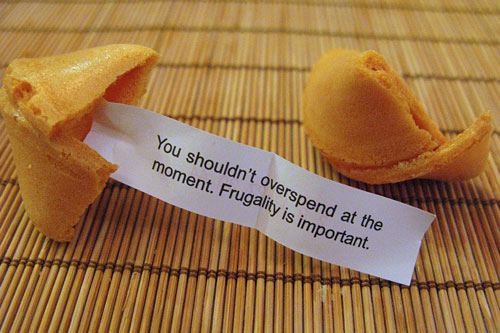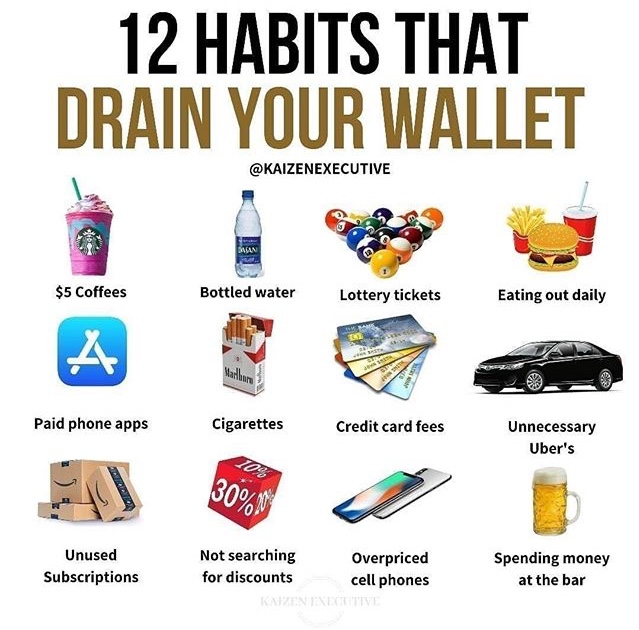Saving money is something most young people struggle with. But to save money in college or in high school is vitally important to your future. This article introduces you to the basics of frugality and gives some specific ideas to save money now.
To begin, there are two basic ways to increase your wealth:
- Earn more
- Spend less
This article focuses on the second.

Freak Speak: Frugality = being prudent or economical in the consumption of consumable resources, thus avoiding waste, lavishness, or extravagance.
In other words, frugality is only spending money on the things you really value while not wasting money on things you don’t.
Frugality doesn’t mean you can’t have fun or enjoy life. If there is ever a time when you are reading this article and you say to yourself, “I could never give that up!”, then don’t. Go ahead and spend money on the things you value. Don’t spend money on the things you’ll forget or regret.

Frugality is NOT spending as little money as possible. That is being cheap. What’s the difference between being frugal and being cheap?
Stefanie O’Connell sums it up well:
“Being cheap is about spending [as little as possible]; being frugal is about prioritizing your spending so that you can have more of the things you really care about.”
Stefanie O’Connell
For example, being frugal doesn’t mean you can’t buy that motorcycle or a new coat or new shoes (or other items) that you really want. If you value that item and fully understand its cost to you but still want to have it, then buy it and enjoy it. But if you buy it and then six months later you hardly ever touch it, you weren’t honest about its actual value to you and/or you were blinded by the commercialism and marketing around that item that made you think you would enjoy it more and longer than you actually did.
Do you really value that smartwatch? Do you really value the latest version of iPhone? What if you bought a new iPhone on Amazon that is now the second or third oldest model. Would you be OK using that phone and saving $700? I think so.
In his book Set for Life, Scott Trench says:
“The cost of one’s lifestyle will be the single largest determinant of when they achieve early financial freedom.”
Set for Life by Scott Trench
If you diminish your spending on things you don’t really value, you will increase your savings and thus increase your wealth. This will put you on a fast track to Financial Independence (or FI). This is a bedrock strategy in personal finance.

Here are two simple examples of creative frugality:
1. If you really value your gym membership, ask yourself:
“What if I pay for the membership only during the winter and then have no membership during the summer when it’s easier to exercise outside because of the nicer weather?”
2. Instead of paying for the yoga class, offer to come early to help check people in or stay after and clean up in order to take the class for free.
What you can stop:
- Buying things you don’t need when they are on sale and telling yourself you saved money.
- Allowing marketing messages tell you what you value and what you should buy.
- Letting others’ potential opinions of you determine what you should own.
- Paying for multiple entertainment subscriptions. Choose only one or two of: Cable TV, Netflix, Amazon Prime Video, Hulu, YouTube TV, HBO, Pandora, Spotify, Amazon Music Unlimited, SiriusXM, etc.
- Subscribing to magazines that you don’t actually read.
- Eating out so often. Cook at home with friends instead. Buy food in bulk.
- Shopping sprees (both online and in stores)
- Spending money at bars
- Always driving your car. Instead, carpool, bike, take the bus, use an electric scooter, or walk.

What you can start:
- Put your cell phone on your parents’ account and pay them your share (likely much less than paying for your own account).
- Buy things that don’t need to be brand new on Facebook Marketplace, at thrift stores, or on Craigslist.
- Buy your clothes at Target instead of Nordstrom’s (or whatever high priced retailer you prefer).
- Have a friend cut your hair. (OK, this may be more for the males)
- Give up brand names for items you need but don’t value. (i.e., clothing, shoes and furniture)
- Instead of paying for fun, try going for a hike, playing basketball, taking a walk with a friend or sitting in a park and reading.
- If your parents want to buy you a new pair of Nike shoes (or other item), ask them to give you the money to buy them (maybe $150) and then buy a non-brand name pair (maybe $50) and save the difference.
- For large purchases: wait 48 hours after making the decision to buy it. If you still want it after 48 hours, go ahead.
Start frugality habits and discipline today.

Leave a Reply